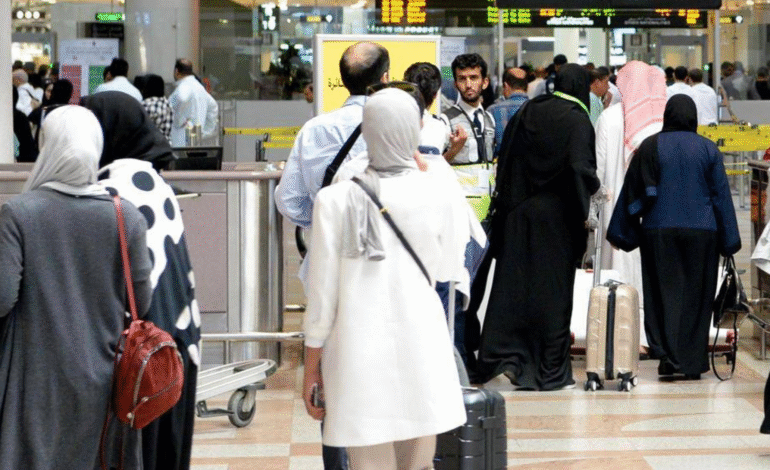Kuwait’s New Customs Rules for Cash and Gold at Airport

In a significant move to bolster border security, enhance transparency, and align with global customs standards, the General Administration of Customs in Kuwait has rolled out updated regulations for travelers passing through Kuwait International Airport. These new guidelines, designed to streamline customs inspections and ensure compliance, mandate that all passengers declare cash, gold, and high-value items exceeding a specific threshold. Whether you’re a frequent flyer, a tourist, or a resident, understanding these rules is crucial to avoid penalties, confiscation, or legal consequences. This article dives deep into the revamped Kuwait customs regulations, offering insights to help travelers navigate the process seamlessly while ensuring compliance with international standards.
Why the New Kuwait Customs Rules Matter
The Kuwait Customs Authority is taking decisive steps to strengthen border control and promote the safe movement of goods and people. These regulations are part of a broader initiative to curb illicit financial flows, prevent smuggling, and align with global trade compliance standards. By enforcing stricter declaration requirements, Kuwait aims to enhance transparency in financial transactions and protect its economy. Travelers carrying cash, gold bars, gold coins, luxury jewelry, or high-value electronics must now adhere to these updated protocols to ensure a hassle-free journey through Kuwait International Airport.
Key Highlights of the New Regulations
The updated customs procedures apply to all passengers entering or exiting Kuwait. Here’s a breakdown of the critical changes:
- Mandatory Declaration of Cash: Travelers carrying cash or negotiable instruments exceeding 3,000 Kuwaiti Dinars (KWD)—approximately USD 9,700—must declare it to customs officials. This rule applies regardless of the currency type, ensuring that all significant financial transactions are documented.
- Gold and Precious Items: All forms of gold, including gold bars, gold coins, and gold jewelry, must be declared. Additionally, other high-value items such as luxury watches, electronics, and precious jewelry fall under the declaration mandate.
- Proof of Ownership: To facilitate smooth customs inspections, travelers must carry proof of ownership (e.g., purchase invoices or receipts) for declared items. This documentation helps verify the legitimacy of the items and prevents delays.
- Hand Luggage Requirement: All high-value items, including gold and luxury goods, must be carried in hand luggage to allow for quick inspection by customs officials.
- Penalties for Non-Compliance: Failure to declare cash, gold, or high-value items can result in severe consequences, including confiscation of the items, fines, or even detention by Kuwait Customs Authority officials.
These measures underscore Kuwait’s commitment to fostering a secure and transparent environment for travelers while adhering to international customs protocols.
How to Comply with Kuwait’s Customs Regulations
To ensure a smooth travel experience, passengers must familiarize themselves with the declaration process and prepare accordingly. Here’s a step-by-step guide to comply with the new rules:
- Complete the Customs Declaration Form: Travelers must fill out the required customs declaration form before departure or immediately upon arrival at Kuwait International Airport. These forms are available at the airport or can be downloaded from the Kuwait Customs website for convenience.
- Organize Documentation: Always carry proof of ownership for gold, luxury watches, electronics, or other high-value items. Invoices, receipts, or certificates of authenticity can expedite the inspection process and prevent misunderstandings.
- Carry Items in Hand Luggage: Ensure that all declared items are packed in your hand luggage. This allows customs officers to inspect them quickly, reducing wait times and avoiding complications.
- Declare Cash Accurately: If you’re carrying cash or negotiable instruments exceeding 3,000 KWD, report the exact amount to customs officials. Accurate declarations help maintain transparency and avoid penalties.
- Seek Clarification if Needed: For any doubts or additional information, visit the Kuwait Customs website or contact airport authorities directly. Being proactive can save you from potential issues during your journey.
By following these steps, travelers can ensure compliance with the new regulations and enjoy a seamless experience at Kuwait International Airport.
Why These Changes Are Significant for Travelers
The introduction of these customs regulations reflects Kuwait’s alignment with global standards set by organizations like the Financial Action Task Force (FATF). These standards aim to combat money laundering, terrorism financing, and smuggling by enforcing stricter controls on the movement of cash and valuables. For travelers, this means greater accountability but also enhanced security during their journeys.
Frequent travelers, expatriates, and tourists visiting Kuwait must stay informed about these rules to avoid legal repercussions. For instance, undeclared gold or cash could be seized, and travelers may face fines or detention, which could disrupt travel plans or lead to significant financial losses. By adhering to the new guidelines, passengers contribute to a safer and more transparent travel environment while avoiding unnecessary complications.
Impact on Kuwait’s Economy and Global Standing
Kuwait’s updated customs policies are a strategic move to strengthen its position as a global trade hub. By implementing these measures, the Kuwait Customs Authority ensures that the country remains compliant with international regulations, fostering trust among global partners. The focus on transparency and security also enhances Kuwait’s reputation as a safe destination for travelers and investors.
Moreover, these regulations help protect Kuwait’s economy by curbing illicit financial activities. By requiring declarations for cash and high-value items, the authorities can monitor large transactions and prevent smuggling or money laundering. This, in turn, supports Kuwait’s efforts to maintain a stable and secure economic environment.
Tips for Travelers to Avoid Customs Issues
To navigate the new Kuwait customs regulations effectively, consider the following tips:
- Plan Ahead: Before traveling, review the Kuwait Customs website for the latest updates on declaration requirements and prohibited items.
- Keep Records Handy: Always carry invoices or receipts for gold, luxury watches, or electronics to prove ownership and avoid delays during inspections.
- Avoid Carrying Excessive Cash: If possible, limit the amount of cash you carry to below 3,000 KWD to simplify the declaration process.
- Use Digital Payments: Where feasible, opt for digital transactions or bank cards to reduce the need to carry large amounts of cash.
- Stay Informed: Regulations may evolve, so regularly check for updates from the Kuwait Customs Authority to stay compliant.
By preparing in advance and adhering to these guidelines, travelers can minimize the risk of customs violations and enjoy a stress-free journey.
How Kuwait Compares to Other GCC Countries
Kuwait’s new customs regulations align with similar measures implemented across the Gulf Cooperation Council (GCC) countries, such as the United Arab Emirates, Saudi Arabia, and Qatar. For instance, the UAE requires travelers to declare cash or negotiable instruments exceeding AED 60,000 (approximately USD 16,300), while Saudi Arabia mandates declarations for amounts above SAR 60,000 (approximately USD 16,000). Kuwait’s threshold of 3,000 KWD is relatively lower, reflecting its focus on stringent border control.
Like Kuwait, other GCC nations also require declarations for gold and high-value items, emphasizing the region’s commitment to global compliance and security. Travelers moving within the GCC should familiarize themselves with each country’s specific requirements to ensure a smooth travel experience.
The Role of Technology in Customs Enforcement
The Kuwait Customs Authority is leveraging technology to streamline the declaration and inspection process. Advanced scanning systems and digital declaration forms are being introduced to enhance efficiency and reduce wait times at Kuwait International Airport. These tools allow customs officials to quickly verify cash, gold, and high-value items, ensuring compliance without causing significant delays for travelers.
Additionally, the Kuwait Customs website offers resources and online tools to help passengers prepare for their journey. By embracing digital solutions, Kuwait is modernizing its customs processes while maintaining a high level of security and transparency.
What Happens if You Fail to Comply?
Non-compliance with Kuwait’s customs regulations can lead to serious consequences. If travelers fail to declare cash or high-value items exceeding the threshold, they risk:
- Confiscation: Undeclared items may be seized by customs officials, with no guarantee of recovery.
- Fines: Monetary penalties may be imposed, depending on the severity of the violation.
- Legal Action: In extreme cases, travelers could face detention or legal proceedings, particularly if authorities suspect smuggling or money laundering.
- Travel Disruptions: Non-compliance can lead to delays, missed flights, or other inconveniences.
To avoid these outcomes, travelers must prioritize transparency and adhere to the declaration requirements at all times.
How to Stay Updated on Kuwait Customs Regulations
The Kuwait Customs Authority encourages travelers to stay informed about the latest regulations. Here are some ways to access up-to-date information:
- Visit the Official Website: The Kuwait Customs website provides detailed guidelines, downloadable forms, and FAQs to assist travelers.
- Contact Airport Authorities: For specific queries, reach out to Kuwait International Airport customs officials via phone or email.
- Follow Official Announcements: Monitor news updates from the General Administration of Customs in Kuwait for any changes to the regulations.
By staying proactive, travelers can ensure compliance and avoid potential issues during their journey.







